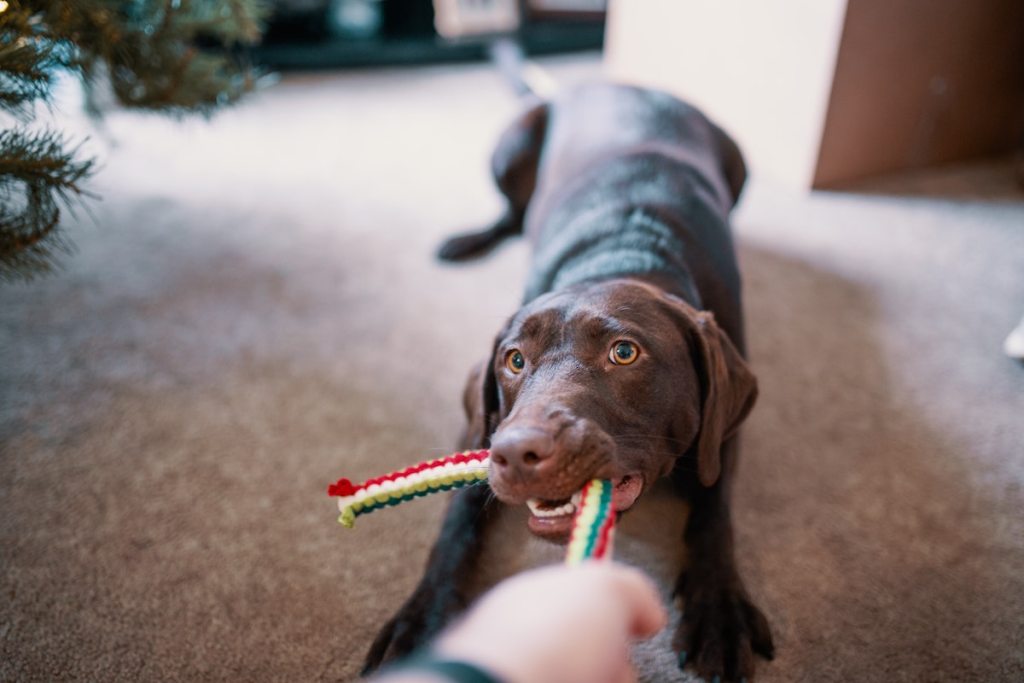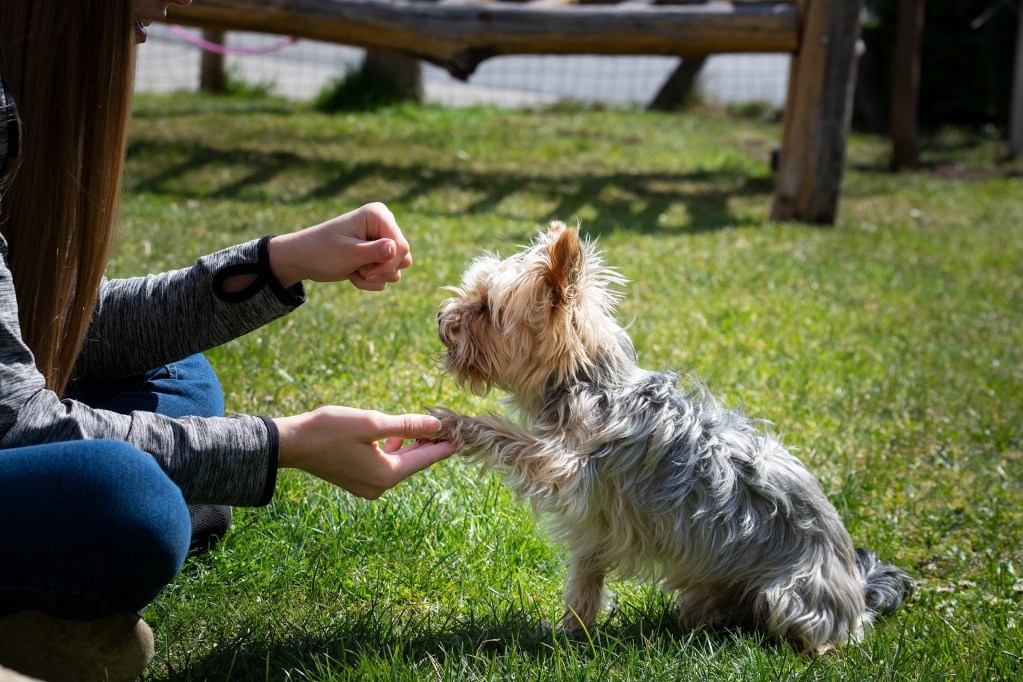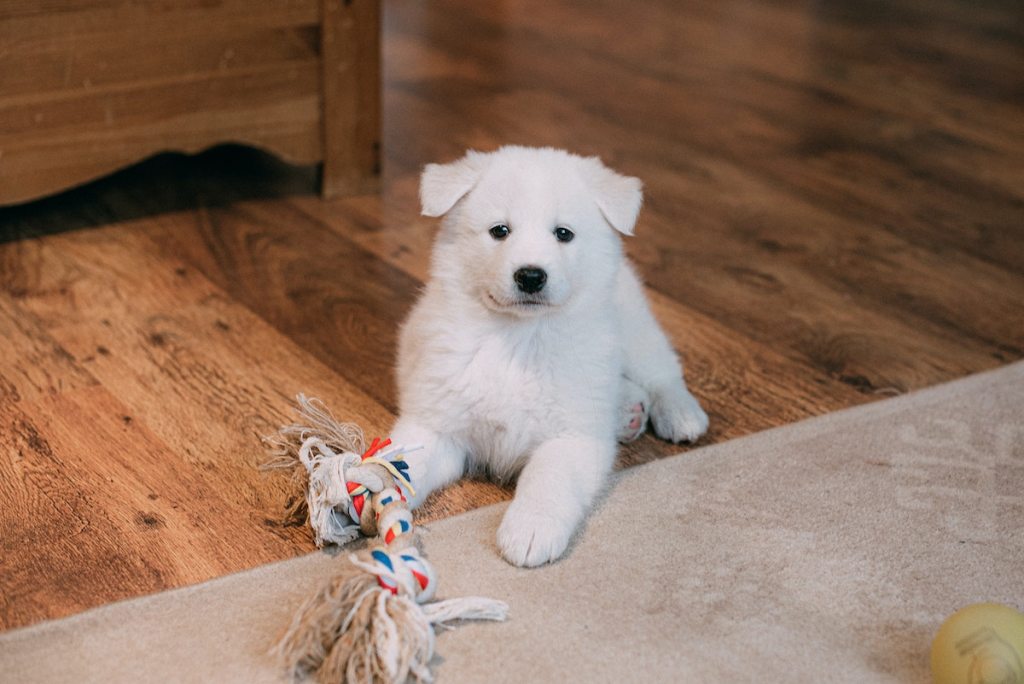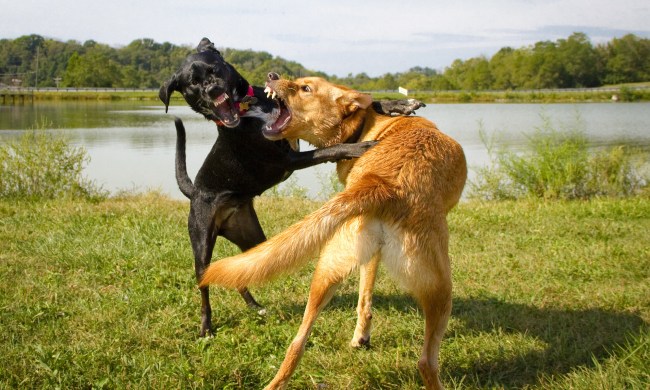There are times every pet parent feels as though they’re out of depth or coming up short in regards to their pet. Whether it’s a behavioral problem, a health concern, or simply how to find the right doggie daycare, wouldn’t it be great to have an expert on speed dial to give you advice and reassure you that you’re doing just fine?
Unless you happen to know an expert personally, podcasts are a great way to get this advice and reassurance. When it comes to dog training, podcasts feature a variety of experts who can help any pet parent, and there are enough to last a lifetime! Wondering which dog training podcasts to start with? Here are our favorite ones!
Animal Training Academy

Available on: Spotify, Apple, YouTube
Professional animal trainer Ryan Cartlidge hosts this show featuring training techniques from experts such as behaviorist Dr. Susan Friedman, experienced guide dog mobility trainer Tony Harvey, and award-winning writer Laura VanArendonk Baugh. If training dogs is your passion or you just need advice on training yours, this podcast covers a variety of positive reinforcement training techniques that apply to animals in every situation.
What Would Jeff Do?

Available on: Apple, Google, Spotify
Jeff Gellman of Solid K9 Training hosts this popular podcast that helps you have fun while gaining a greater understanding of your dog. Gellman believes the most important part of being a dog trainer is helping pet owners stop their pet’s bad behavior to keep them in the house. Tune in to hear him field questions from his live Facebook and YouTube sessions on everything from dog training to business to life, in general.
Dog Talk with Dr. Jen

Available on: Apple
Dr. Jennifer Summerfield is a veterinarian and dog trainer who specializes in treating behavioral problems such as aggression, separation anxiety, and compulsive behavior issues. While the podcast isn’t currently putting out episodes, topics included how to deal with housemate aggression, taking the stress out of vet visits, and how to choose the right dog for your family. Summerfield’s compassionate voice calmly explains the problem, and then suggests practical solutions for solving it.
Drinking from the Toilet

Available on: Apple, Stitcher, Spotify
Hannah Branigan hosts this authentic and sometimes hilarious look at the reality of dog training, behavior, and learning. Branigan, who has a background in both sports and biology, applies her knowledge and experience in positive reinforcement training to the training and competing she does with her dogs. Podcast topics include an in-depth look at fear and whether it can be reinforced, how you might be reinforcing your dog’s herding behavior, and a deeper look at learning and memory as it relates to training your dog.
Positively Dog Training, the official Victoria Stilwell podcast

Positively Dog Training, the official Victoria Stilwell podcast
Available on: Apple, Spotify, YouTube, Stitcher, and more
Dog lovers will recognize Victoria Stilwell from her hit television series It’s Me or the Dog. On her podcast, she teams up with CNN reporter Holly Firfer to discuss dog-related topics and also gives you a behind-the-scenes look at life on the set. Her Positively Dog Training network focuses on humane, force-free, positive training techniques. Podcast topics range from dog education and behavior to intelligence, social learning, and evolution.
Canine Conversations

Available on: Apple, Spotify, YouTube
Master behaviorist and dog trainer Robert Cabral hosts this well-rounded podcast on all things canine. From training and sport competitions to health concerns and food choices, Cabral brings his years of experience with shelter dogs and competitive obedience and protection dogs to the airwaves. Topics range from daily enrichment, fearfulness, and dominance to how to prepare your home and family for a new puppy.
Your Family Dog Podcast

Available on: Apple, Stitcher
Between them, co-hosts Julie Fudge Smith and Tina M. Spring have more than 60 years of dog training experience. Fudge Smith and Spring believe that “life is better with a dog” and cover a wide variety of topics to help families love living with their dogs. Subject matters include what you need to know about dog bites, what to look for in a doggie daycare facility, and how to deal with parasite invasions of the flea and tick persuasion.
Why dog training is important

In addition to ensuring that your dog knows how to follow commands, which can keep your pup safe, training helps to build your dog’s confidence. Just like us, dogs sometimes suffer from anxiety and depression, but well-trained dogs are less likely to suffer from mental health conditions. Training your pooch also provides the mental stimulation all dogs crave while strengthening your bond with your fur baby. You can’t beat that.
What is the most effective form of dog training?

When training your beastie, you want to use positive reinforcement, meaning focusing on doling out rewards for good behavior instead of punishing unwanted actions. That could include a treat or praise from his favorite person, which will help him repeat the wanted activity. The key to getting this to work: The reward needs to come immediately after the desired outcome.
In practice, this will look like giving a treat exactly when your dog follows the command. While other training methods exist, many experts agree that sticking with positive reinforcement consistently will increase the dog-owner bond and get the best result for both of you.
What are the benefits of dog training podcasts?

There are tons of resources out there for pet parents, including books, TV shows, videos, and podcasts. So why should you choose a dog training podcast over a book or a video? While you can (and probably should) use multiple sources, podcasts offer things that other mediums don’t.
A dog trainer can demonstrate voice commands that might be difficult to explain through text, and they often include personal anecdotes that are helpful and entertaining. Podcast hosts are also much easier to get in touch with, whether through leaving a comment or submitting a question. If they haven’t covered a topic you’re interested in or you have a very specific question, there’s a good chance you can get an answer!
See? You’re not alone. Consider this: More households have at least one dog in them, making dogs the most popular pet in the world (cat owners, you run a close second!). So, it stands to reason that if you’re wondering about a dog-related topic, there’s probably another dog owner somewhere in the world who is wondering the same thing — and, fortunately, a dog training expert who is talking about that topic on a podcast near you. All you have to do is tune in.



